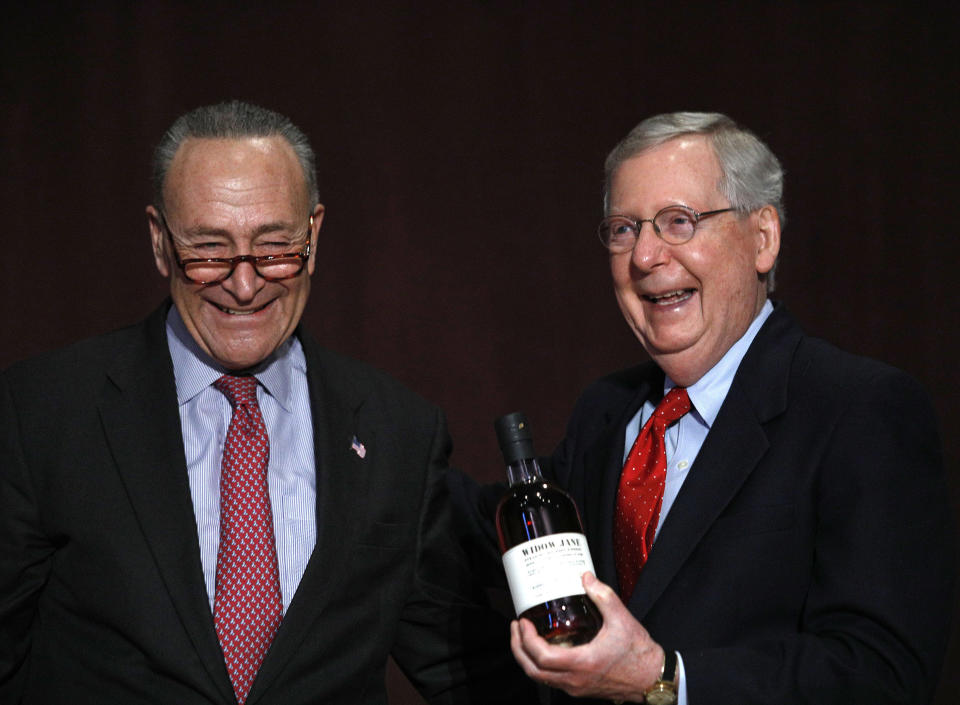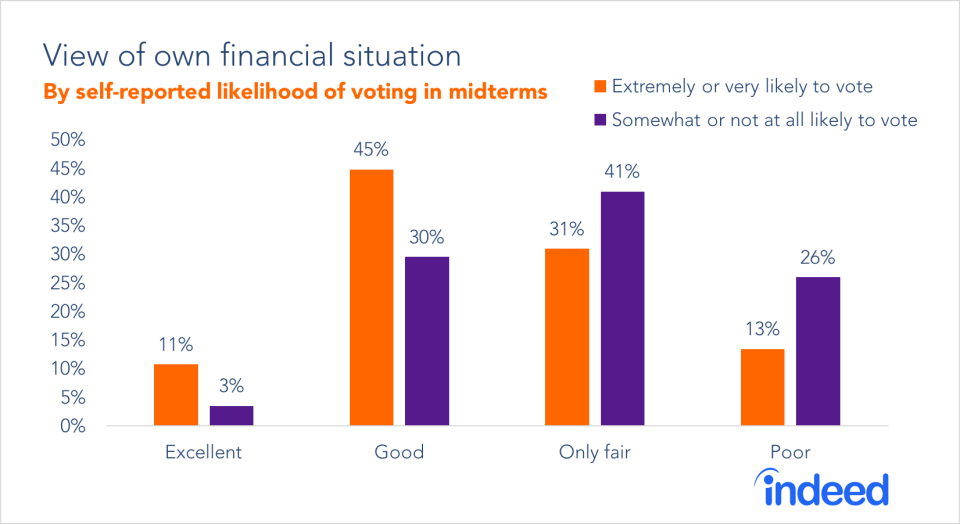Democrats and Republicans agree on 2 things about the economy: Survey

When it comes to the economy, there is little agreement across the aisle. Except on matters of personal finance and automation, according to a new report from Jed Kolko, chief economist at the online jobs site Indeed.
The report surveyed 2,000 adults in the U.S. on matters of the national economy, labor market policies, and more. What surprised Kolko, he says, was how little difference existed between both parties in their views of their own financial situation: 52% of Republicans and roughly 45% of Democrats rated their own financial situation as excellent or good.
“The similarity between Democrats and Republicans in how they view their personal situation is more in line with how they’re actually doing in the economy,” he said.

This is consistent with an August report from Indeed that showed the market recovery benefited both Democrats and Republicans.
“The labor market has done well under Trump,” the report said. “Yet, for the most part, these gains represent a continuation of the long recovery that began early in Obama’s first term. And the benefits have been well distributed — both red and blue America have shared in them.”
Interestingly, Democrats and Republicans also agreed on automation — 60% of respondents in both camps believe robots and automation will imperil jobs.
“I was surprised that there wasn’t a bigger partisan gap about automation because Republican areas tend to have more jobs at risk than Democratic areas,” Kolko said.
The Red-Blue Divide
But this is where the bipartisanship ends.
Nearly three-quarters of Republicans viewed the economy as excellent or good, compared to just 43% of Democrats. And when it comes to how Trump is handling the economy, the chasm grows. On the economy, Trump has an 85% approval rating among Republicans. Those numbers dwindle to only 21% of Democrats.
This is in line with the dip in economic confidence from Democrats after the election, and a surge from Republicans. But, says Kolko, the increase in Republican confidence was bigger than the dip in confidence from Democrats.
“Republicans are more upbeat about the economy than Democrats are downbeat,” Kolko says.
The bipartisan differences don’t end there. Republicans and Democrats are also at odds over the job market, and agree on little when it comes to labor policies.

All the labor market policies surveyed were pretty unpopular. The most liked on the list — jobs guarantee — had relative bipartisan support. But it’s worth noting, says Kolko, that this was only among those who are least likely to vote.
The least popular policy on the list, tariffs, was more than twice as popular with Republicans than Democrats. But tariffs still received less than 25% Republican support of those surveyed.
“When it comes to tariffs,” Kolko explained, “there are more people who are likely to pay more for goods than people who benefit from tariffs.”
“It might be one area where people who benefit from tariffs benefit more on average, but there are more people likely to be hurt. For that reason, I’m not surprised that tariffs were relatively unpopular as an idea among both Democrats and Republicans.”
Abandoning partisan loyalties
The survey respondents weren’t only divided by their political affiliations. When it comes to how voters feel about their finances, the lines aren’t drawn in red or blue ink. Instead, it’s all about who is most likely to show up at the polls.
Likely voters say they are doing far better in the labor market, according to the report. Fifty-six percent of the more-likely voters view their financial situations as excellent or good. Compare that to just 33% of less-likely voters.

That’s in line with what we know about elections, says Kolko.
“It’s typically the case in elections that people who are less educated or lower income or younger are less likely to vote. And those people are ones who are less likely to be in strong financial shape,” he explained.
“So that’s consistent with what we’ve seen in past midterms.”
And why does that matter?
As Kolko says, in politics, the needs of voters get the most attention. But with likely voters doing well, the report highlights, economic policies that address only voters’ needs could portray “too-rosy a view of the labor market.”
Kristin Myers is a reporter at Yahoo Finance.
Munson on Uber: It’s going to be another Facebook
Robinhood co-founder: We want to be a full-service institution
Former Fed SVP: Trump’s attacks are ‘the worst possible outcome’

 Yahoo Finance
Yahoo Finance 
